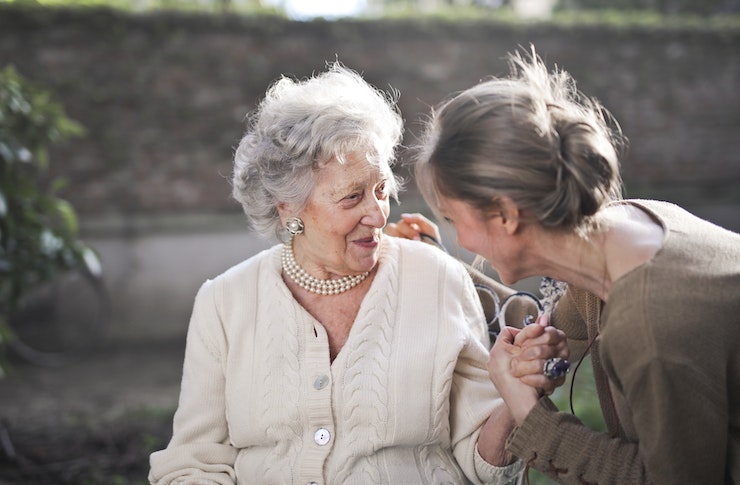The Effect of Social Isolation on the Mental and Physical Well-being of Older Adults: Understanding the Impact and Strategies for Coping
As people age, they may face an increased risk of social isolation, a condition where they lack social contact with family, friends, and the community. Social isolation can have negative impacts on both mental and physical health, and older adults are particularly vulnerable to its effects. This article aims to provide an overview of the impact of social isolation on older adults' mental and physical health and suggest strategies for coping with social isolation.

Introduction
Social isolation is a growing concern, with the number of older adults experiencing it on the rise. According to a report by the National Council on Aging, around 25% of older adults in the United States are socially isolated. Social isolation can result from various factors, such as retirement, bereavement, chronic illness, and mobility issues. While social isolation may affect people of any age, it can have severe implications for older adults, who may experience declining physical and mental health as a result.
Impact of Social Isolation on Mental Health
Social isolation can have negative impacts on an individual’s mental health, including depression, anxiety, and cognitive decline. Older adults who are socially isolated may experience higher levels of depression than their counterparts who maintain social connections. They may also be at increased risk of developing anxiety disorders, including generalized anxiety disorder, panic disorder, and social phobia.
Social isolation can also lead to cognitive decline in older adults, with research indicating that socializing with others may help to maintain cognitive function. In contrast, social isolation can result in a decline in cognitive performance, which can lead to a higher risk of developing dementia and Alzheimer’s disease.
Impact of Social Isolation on Physical Health
Social isolation can also have negative impacts on an individual’s physical health. Older adults who are socially isolated may have a higher risk of developing chronic conditions, such as heart disease, diabetes, and hypertension. They may also have a weakened immune system, making them more vulnerable to infections.
Additionally, social isolation can lead to a sedentary lifestyle, as older adults may be less likely to engage in physical activities without the motivation and support of social connections. This can result in reduced physical fitness, muscle atrophy, and a higher risk of falls and injuries.
Strategies for Coping with Social Isolation
There are several strategies that older adults can use to cope with social isolation, including:
Engaging in regular physical activity: Engaging in physical activity can improve physical and mental health and help older adults maintain their physical fitness levels. It can also provide an opportunity to socialize with others, such as joining a local walking or exercise group.
Joining community groups: Joining community groups, such as book clubs, religious groups, and volunteer organizations, can provide opportunities for social connection and help older adults feel more connected to their community.
Utilizing technology: Technology can provide opportunities for social connection and allow older adults to communicate with family and friends, even if they cannot meet in person. Platforms such as Zoom, Skype, and social media can help older adults stay connected and engaged.
Seeking professional help: Older adults who are experiencing depression, anxiety, or other mental health issues as a result of social isolation should seek professional help. Counseling, therapy, and support groups can provide valuable support and resources.
Conclusion
Social isolation can have negative impacts on the mental and physical health of older adults, with implications for their overall well-being. As the number of socially isolated older adults continues to rise, it is essential to understand the impact of social isolation and develop strategies for coping. By engaging in regular physical activity, joining community groups, utilizing technology, and seeking professional help, older adults can mitigate the negative impacts of social isolation and maintain their physical and mental health strategies for coping with social isolation including:
Adopting a pet: Pets can provide companionship and help to reduce feelings of loneliness and social isolation. Caring for a pet can also provide a sense of purpose and routine.
Pursuing hobbies and interests: Pursuing hobbies and interests can provide a sense of fulfillment and enjoyment, and also provide opportunities to socialize with others who share similar interests.
Volunteering: Volunteering can provide opportunities to give back to the community and make a difference, while also providing social connections and a sense of purpose.
Connecting with family members: Maintaining connections with family members, even if they are not geographically close, can help older adults feel more connected and supported. Regular phone calls, video chats, or sending letters can help to maintain these connections.
In conclusion, social isolation can have negative impacts on the mental and physical health of older adults. However, there are several strategies that older adults can use to cope with social isolation, including engaging in regular physical activity, joining community groups, utilizing technology, seeking professional help, adopting a pet, pursuing hobbies and interests, volunteering, and connecting with family members. By implementing these strategies, older adults can maintain their physical and mental health and improve their overall well-being. It is essential to raise awareness of the impact of social isolation on older adults and provide support and resources to help them cope with this growing issue.




